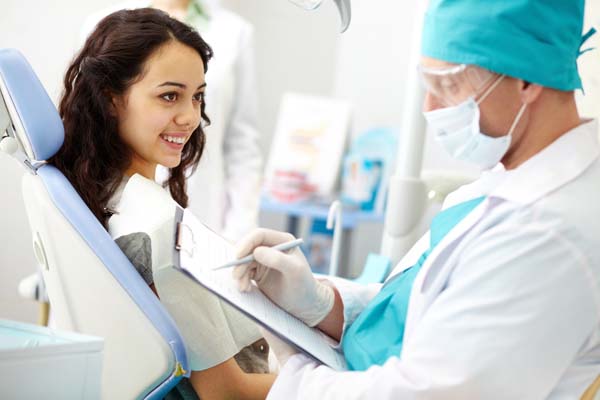Emergency Dentistry: How to Handle an Emergency While Under Lockdown for CoronaVirus (COVID-19) Disease

Routine dental care may be on hold, but you might wonder about emergency dentistry. If you have a dental emergency, you can still get the care you need. This is even more the case if you have a life-threatening issue, such as an infection. Read on to learn more about what to do if you have an emergency.
COVID-19 and dentistry
COVID-19 spreads through droplets that are released into the air. When someone sneezes or coughs, these drops are released. When another person breathes them in, that person can become sick. The dentist can easily come in contact with the fluids in the mouth, such as saliva. Many dental offices are not set up to protect against this.
However, many offices are still providing emergency dentistry services. For example, a dentist can care for an infected tooth. This can save the patient a trip to a hospital, where health care workers may already be overworked. By avoiding a trip to the hospital, the patient will help the facility conserve personal protective equipment.
What requires emergency dentistry?
Patients who have serious problems can still get care. The American Dental Association considers life-threatening issues to be ones that need immediate attention. The dentist will determine what needs to be treated. Patients can usually get treatment for issues such as:
- Severe pain
- Broken teeth that cause tissue damage or pain
- Dental work to treat oral cancer
- Temporary crown that has broken
- Bleeding that will not stop
- Tissue that requires a biopsy
- Swollen areas around the neck or signs of infection
- Severely painful braces
- Trauma that affects someone’s ability to breathe
If a patient is experiencing one of these issues, they should first call the dentist. The dentist can answer questions about what procedures can be done. If the dentist cannot see the patient, the next option is the hospital or urgent care center. This should only be done if emergency dental care cannot be done.
Protecting against COVID-19
It is better to stay home if possible. But for patients who must leave for emergency dentistry, there are some steps that can be taken. Each health care worker at the office should sterilize tools and wash their hands often. Some offices may disinfect the surfaces more often or use a barrier to cover the patient’s mouth.
Patients who may have been exposed to the coronavirus should tell the dentist. The most common symptoms include shortness of breath, fever and cough. The dentist can then take the right steps to prevent the virus from spreading before the patient visits. That way, the patient can still get the right dental care while protecting the dental team.
Choose emergency dentistry today
You cannot plan a dental emergency and you may have one during the COVID-19 outbreak. The good news is that for serious issues, you can still get treatment. Contacting your dentist is the first step you can take. Only then should you consider going to the hospital.
Request an appointment here: https://www.drroberttamaki.com or call Dr. Robert B Tamaki, DDS at (310) 402-0156 for an appointment in our Los Angeles office.
Check out what others are saying about our services on Yelp: Read our Yelp reviews.
Related Posts
Interested in professional teeth whitening after braces? Having braces removed can be exciting for patients who are eager to show off their newly-straightened smiles. Most people want to ensure that their smile looks its absolute best, especially once braces have been removed. One way to help achieve that is through a professional teeth whitening appointment.Professional…
Dental bonding is a quick, affordable fix that dentists use to correct a wide variety of dental problems. Not only is dental bonding useful as a restoration, it also has cosmetic applications. The fact that bonding is easy to use makes it a popular option with dentists. This is how it works.Dental bonding takes the…
Dental implants are small, titanium screws placed into the jawbone where a tooth was removed. The implant fuses with the jawbone over time and supports a crown, bridge, or denture. This article will review six warning signs that it is time to inquire about dental implants.Many people (adults) postpone receiving treatment after losing a tooth…
Having dental implants can correct tooth loss, which is the primary reason for getting these dental replacements. Other reasons for getting them may determine if you are a good candidate for this treatment. Knowing if you are a good candidate for dental implants can help you prepare well for your next appointments. Here are the…
